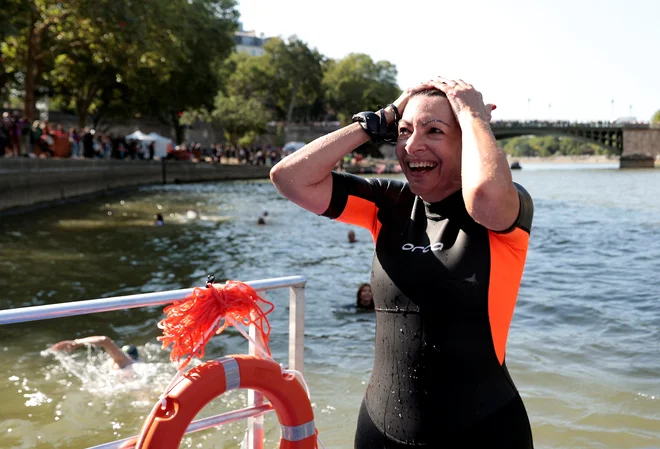Review of Helle Helle « Hafni tells »

I have since my teens, slightly bitter, suspected that the brighter and safer people are, the more they are drawn to the most spectacular destruction of literature, shining on a hell they are really foreign to. Certainly it is an unfair suspicion. But it has always annoyed me that literature that comes with finished dark guarantee and emo stamp – say Nostradamus prophecies or poetry by occultist Aleister Crowley – has a special status, when it is possibly the black for lethargic souls.
Maybe that's why Helle Helles Roman art for me becomes a taste revenue? Because the bonic, everyday, earthly collapse begins to float away the eternal.
This is how her latest novel begins:
« That she should divorce. »
It is in the middle of a sentence, everything is now and present, and is immediately lifted into an intuitive, linguistic consciousness.
Helle Helle, born in 1965, has become one of the Nordic region's most acclaimed writers. She writes quite hard -boiled short novels, which concentrate on sections rather than full whole. Above all, she is a through musical prosaist, who can make any simple story just float.
« Hafni tells », which was nominated for the Nordic Council Literature Prize in 2024, is about a 48-year-old woman with emigrated children. Hafni has decided to celebrate the freedom and divorce with a lone « butter bread trip ». She will get from Frederikssund to Svendborg and then even further west. She should eat herring, shrimp and cold potatoes and she should finish everything with the dignified cookie table in gray stone.
There will be one Danish Pikaresk with a hit at campsites and castles with weekend packages. Although Hafni is a downfall person, there is so much pleasure in the novel. Helle Helle has a special look for the food, the one who holds together people's lives and togetherness and I am incredibly excited to sit for myself on a native tavern and fill to a little lightly over a pork roast.
The narrator is someone who has called and who receives her confession about how the planned eight days of the butter bread trip will be a month and to something much more difficult than she had imagined. Helle Helle does not keep hard in this framework for how the story is conveyed, but it does nothing. Rather, the gap is reinforced between what people are able to say and the chaotic world that is their innermost:
She still wants to say something about the darkness she doesn't want to say anything about. She can go laughing out through an exterior door or stand by a fountain, be in the middle of a sentence. Within a fraction of a second, she cannot describe it in any other way, the darkness falls down from the top and fills her airways. But she talks on and can also continue to laugh. Her ear canals are attacked by yarn, the jaw flees. She wants to step up in the fountain, throw coins down, whatever. In a new one now, the darkness is then transformed into drizzle. She cuts it off with her scissors. And none of this can she say, and There is none.
Hafni is a very ordinary woman and being common is no protection against self -hatred. At night, in hostels and city hotels, she is reminded of embarrassing things she said. But what should she now do about that many years earlier she happened to dive on a mourning woman standing in front of the dairy jam, that she happened to overwhelm this woman with heavy condolences, while the woman was just trying to choose a quarry product? What should she do about her being happy to congratulate a man for his wife to lose weight because she believed the wife went on a cabbagediet, when the wife had in fact suffered from carbon?

She tries to solve the shame with compulsive actions. And the compulsory actions get into the story, in short pieces of text on their own pages, outside the course of events and with the nature of the rules for housewives: « Do not rub away insects with a cloth on the wall. »
It takes a while Before I accept that the absurd is more twisted in « Hafni tells » than in, for example The novel « They » from 2018. And I am not as reservationless taken by the latest book as by « the », which depicts the love between a teenage girl and her dying mother. But during the course of the reading, this is exactly how this soft commute between despair and pure fun is part of Helle Helle's genius. Or, it is not even a commute, everything exists at the same time and is fully integrated into each sentence.
Hafni is recognized as a bifigure in « they », and in a fine print way, the new novel is also linked to « Bob » from 2021.
Above all, the trilogy is about people, often women, who have difficulty getting proper attached to the life expected of them. The do Most often right, they dress and eat and watch TV according to the templates for ordinary people – but they feel Not right, or they get sick, or they have anxiety.
Already in « they » was noticed a magnificent ethical approach and this is so clear to « Hafni tells ». Helle Helle is completely free from what it is to write about working class, about modern petty bourgeoisie. It is not clearly realistic or melodramatic, not just poetic, not just prosaic. Instead, a story that liberates the figures from the socio -economic shackles and the class story from genre expectations, lets everything appear as a winding, complex existence.
Hafni describes himself as the opposite of « linguistic ». What Helle Helles novels do is create a language for those whose depth of soul is well hidden during a jumpsuit in fleece.
Also read:
Fundamentally beautiful about love between mother and daughter








